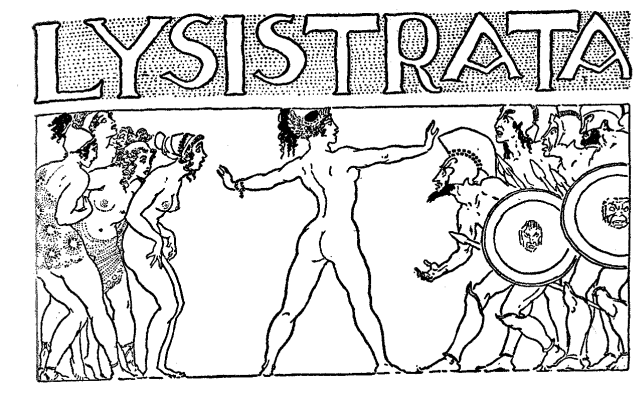
http://archive.org/details/Comedies_of_Aristophanes
[justify]The Clouds (??????? / Nephelai) is a comedy written by the celebrated playwright Aristophanes lampooning intellectual fashions in classical Athens. It was originally produced at the City Dionysia in 423 BC and it was not well received, coming last of the three plays competing at the festival that year. It was revised between 420-417 BC and thereafter it was circulated in manuscript form. No copy of the original production survives, and scholarly analysis indicates that the revised version is an incomplete form of Old Comedy. This incompleteness, however, is not obvious in translations and modern performances. The Clouds can be considered not only the world's first extant 'comedy of ideas' but also a brilliant and successful example of that genre. The play gained notoriety for its caricature of the philosopher Socrates ever since its mention in Plato's Apology as a factor contributing to the old man's trial and execution.
Lysistrata (/la??s?str?t?/ or /?l?s??str??t?/; Attic Greek: ??????????, "Army-disbander") is one of the few surviving plays written by Aristophanes. Originally performed in classical Athens in 411 BCE, it is a comic account of one woman's extraordinary mission to end The Peloponnesian War. Lysistrata persuades the women of Greece to withhold sexual privileges from their husbands and lovers as a means of forcing the men to negotiate peace ? a strategy, however, that inflames the battle between the sexes. The play is notable for being an early exposé of sexual relations in a male-dominated society. The dramatic structure represents a shift away from the conventions of Old Comedy, a trend typical of the author's career. It was produced in the same year as Thesmophoriazusae, another play with a focus on gender-based issues, just two years after Athens' catastrophic defeat in the Sicilian Expedition.
The Birds (Greek: ??????? Ornithes) is a comedy by the Ancient Greek playwright Aristophanes. It was performed in 414 BCE at the City Dionysia where it won second prize. It has been acclaimed by modern critics as a perfectly realized fantasy remarkable for its mimicry of birds and for the gaiety of its songs. Unlike the author's other early plays, it includes no direct mention of the Peloponnesian War and there are few references to Athenian politics, and yet it was staged not long after the commencement of the Sicilian Expedition, an ambitious military campaign that had greatly increased Athenian commitment to the war effort. It is the longest of Aristophanes' surviving plays and yet it is a fairly conventional example of Old Comedy.
The Frogs (Ancient Greek: ???????? Bátrachoi, "Frogs") is a comedy written by the Ancient Greek playwright Aristophanes. It was performed at the Lenaia, one of the Festivals of Dionysus in Athens, in 405 BC, and received first place. The Frogs tells the story of the god Dionysus, who, despairing of the state of Athens' tragedians, travels to Hades to bring the playwright Euripides back from the dead. (Euripides had died the year before, in 406 BC). He brings along his slave Xanthias, who is smarter and braver than Dionysus. The play opens as Xanthias and Dionysus argue over what kind of jokes Xanthias can use to open the play. For the first half of the play, Dionysus routinely bungles, forcing Xanthias to enable him.[/justify]